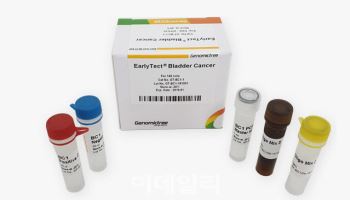Unauthorized reproduction or distribution is illegal and subject to criminal penalties.
Pharm Edaily enforces a zero-tolerance policy and will take strict action.
[Lim Jeong-yeo, Edaily Reporter] South Korea’s pharmaceutical and biotech stock market on Thursday saw sharp rally from Proteina, a protein-protein interaction(PPI) big data firm, following JP Morgan’s sizable investment in the company. Investor expectations also lifted Sillajen, which is awaiting U.S. Food and Drug Administration (FDA) clearance for a Phase 1 trial for its pipeline this month. and Neurophet, an artificial intelligence (AI) brain disease imaging firm.
 | | Proteina chart(Cred=KG Zeroin MP Doctor) |
|
Proteina surges on JP Morgan’s 9.6B won investment Proteina, which listed on KOSDAQ on July 29, has gained more than 75% over its initial public offering (IPO) price of 14,000 won in just over a month. On Thursday, the stock closed at 24,600 won, up 24.68% (4,870 won) from the previous session, after climbing as high as 25,600 won intraday, according to KG Zeroin MP Doctor.
The rally followed a regulatory filing disclosing that JP Morgan Asset Management had acquired a 5.16% stake in Proteina through a 9.6 billion won on-market purchase. PharmEdaily was the first to report the news.
Founded by Seoul National University professor Tae-Young Yoon, Proteina owns platform technologies including equipments that mass-produce big data on protein interactions. Later this year, the company plans to unveil its “AI Antibody Drug Discovery Platform,” developed under a Ministry of Science and ICT-backed national project with an SNU research team.
A company official explained, “Ahead of the IPO, our CEO, CFO, and CCO held a roadshow with Korea Investment & Securities for institutional investors in Hong Kong and Singapore, including JP Morgan Asset Management (Asia Pacific). At the time, our market cap was too small for them to participate. However, after cross-checking with their U.S. affiliate, it appears they have ultimately decided to invest.”
 | | Sillajen chart(Cred=KG Zeroin MP Doctor) |
|
Sillajen eyes FDA Phase 1 green light this month Sillajen on Thursday closed at 3,370 won, up 16.01% (465 won) from the previous session. The company announced at the “2025 Oncolytic Virus Symposium” on this day, where it presented results from its proprietary oncolytic virus platform, GEEV, which expresses complement regulatory protein CD55 on vaccinia virus IMV (intracellular mature virion) surfaces to suppress neutralizing antibodies upon repeat dosing.
The company’s SJ-600 series, based on this GEEV platform, demonstrated stronger antitumor efficacy through intravenous administration than direct intratumoral injection in preclinical trials. Management highlighted that this is the first oncolytic virus platform allowing repeat intravenous dosing without loss of efficacy.
Separately, Sillajen expects FDA clearance this month for a Phase 1 trial of its lead oncology pipeline candidate, BAL0891. The study will be split into two parts: the first for patients with advanced solid tumors and relapsed/refractory acute myeloid leukemia (AML), and the second for triple-negative breast cancer (TNBC) and gastric cancer (GC). A total of 260 patients will be enrolled. The trial will test BAL0891 both as monotherapy and in combination with tislelizumab or paclitaxel to assess safety and tolerability.
A company spokesperson said, “Foreign investors have been net buyers since mid-August. We expect FDA clearance this month for the Phase 1 trial combining BAL0891 with BeOne Medicine’s tislelizumab. In the second half, we will present preclinical BAL0891 organoid data at overseas conferences.”
 | | Neurophet chart(Cred=KG Zeroin MP Doctor) |
|
Neurophet nears IPO price recovery Neurophet, which listed around similar time as Proteina at an IPO price of 14,000 won, is rebounding after slipping below issue price. The stock closed at 13,620 won on Thursday, up 6.16% (790 won).
Neurophet develops AI solutions to support diagnosis of neuro-disorders and evaluation of treatment efficacy. Holding the largest domestic market share, Neurophet also collaborates with global pharmaceutical players such as Eli Lilly on data initiatives. Unlike peers focused solely on AI-based brain imaging software sales, Neurophet leverages partnerships with multinational drugmakers to build a differentiated business model.
Neurophet’s MRI- and PET-based imaging analysis solutions are touted to play an essential role as biomarkers in anti-amyloid antibody trials and clinical use. With global prescriptions of lecanemab (“Leqembi”) expanding, demand for Neurophet’s solutions is expected to grow.
A Neurophet spokesperson commented, “The recent share weakness was largely due to selling pressure from lock-up expirations after one month from IPO. This is a temporary imbalance in supply and demand. Today, the stock rose over 6% intraday, triggering a volatility interruption (VI). Despite institutional and foreign selling, strong retail buying supported the gains. Investor confidence in our AI-driven diagnostic and therapeutic technologies for Alzheimer’s and other brain diseases, along with expectations for global expansion, are underpinning the rally.”












